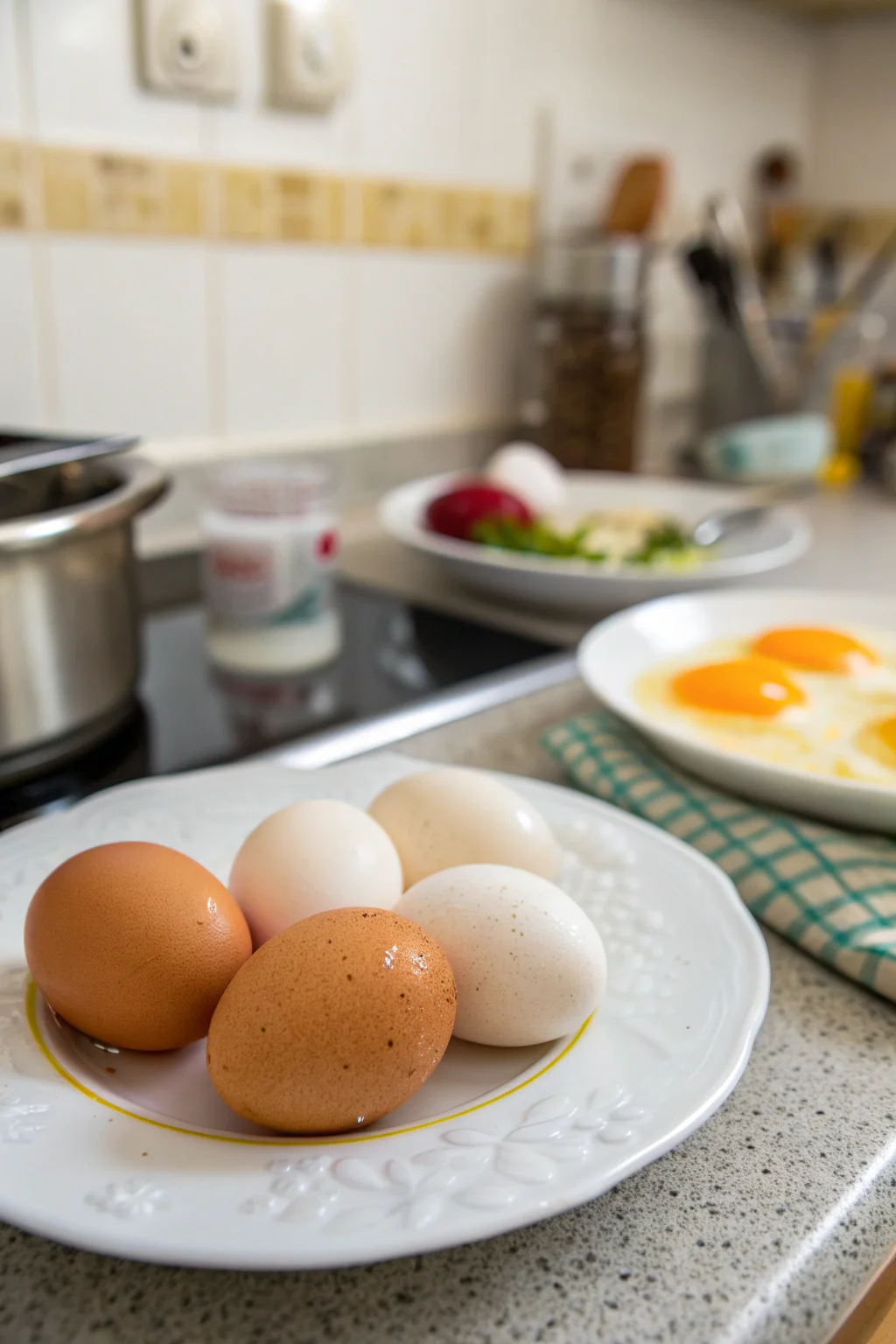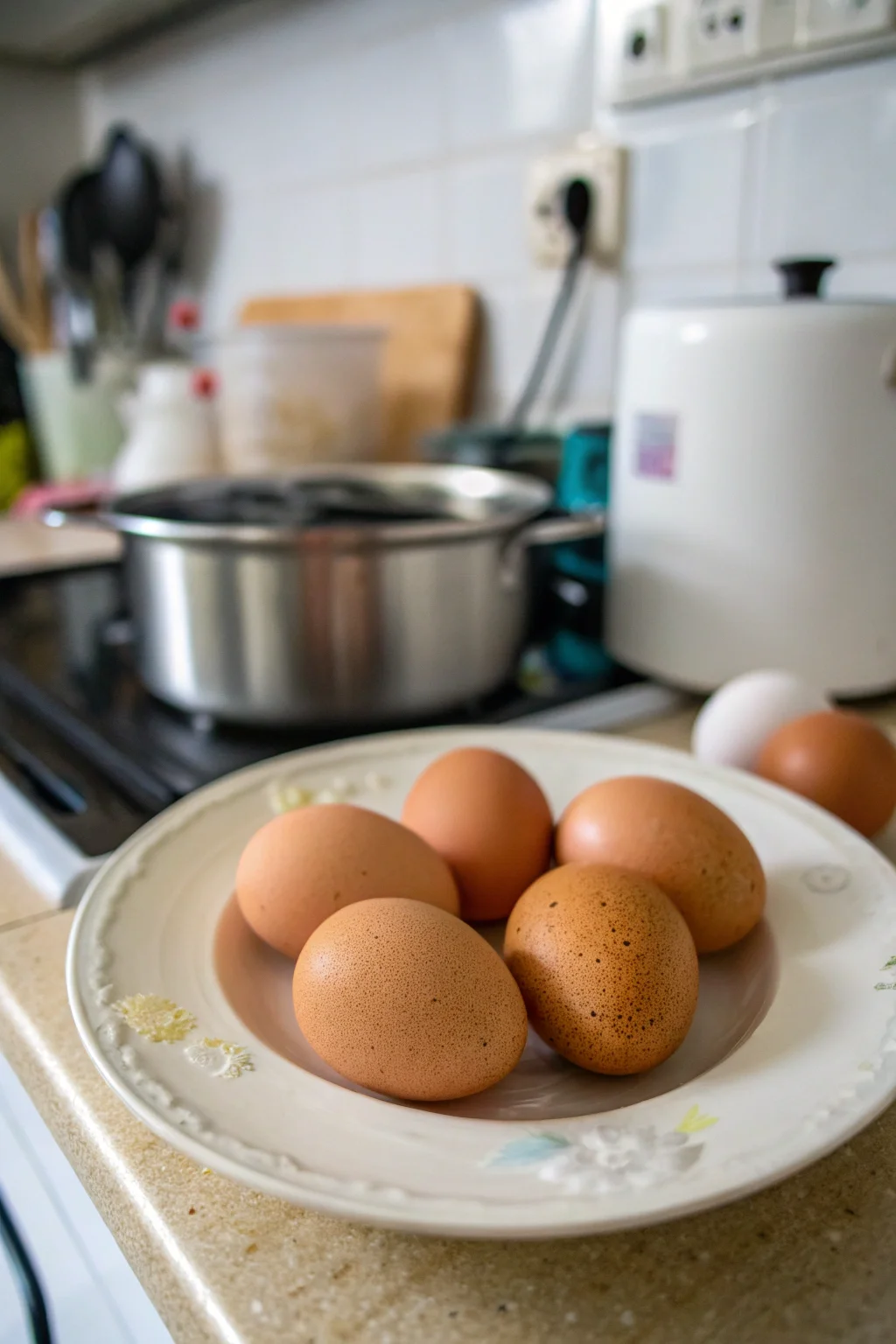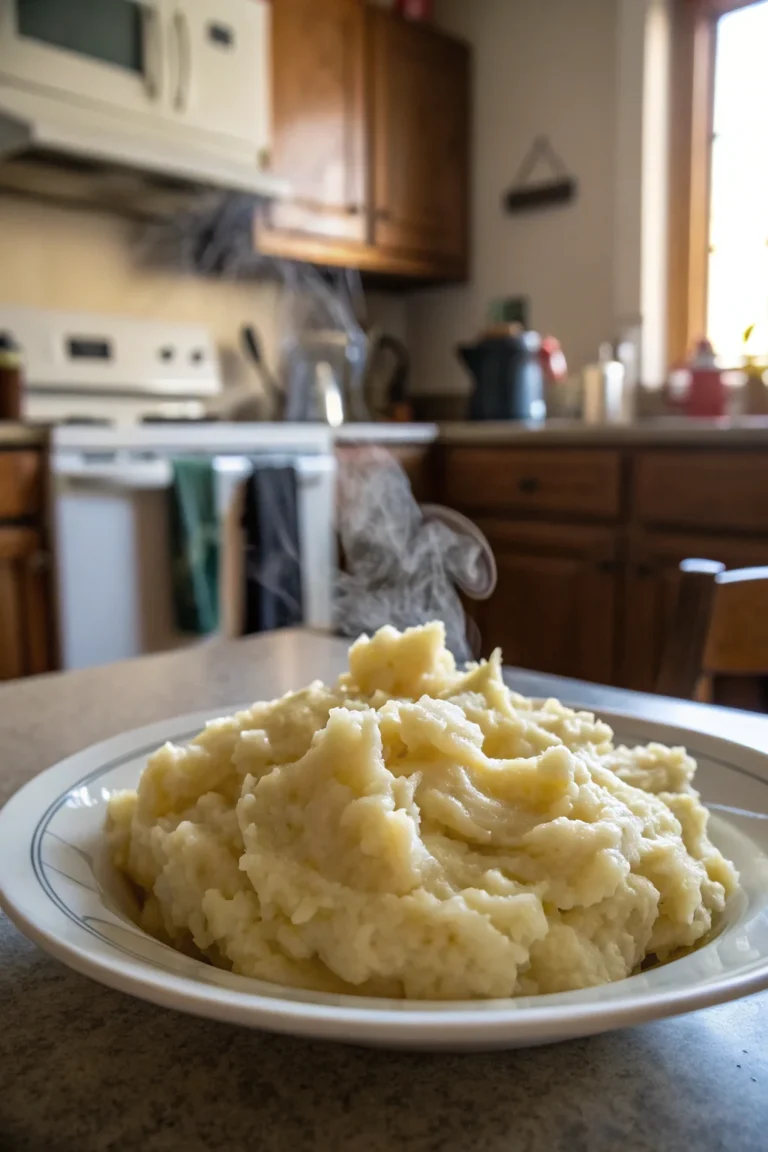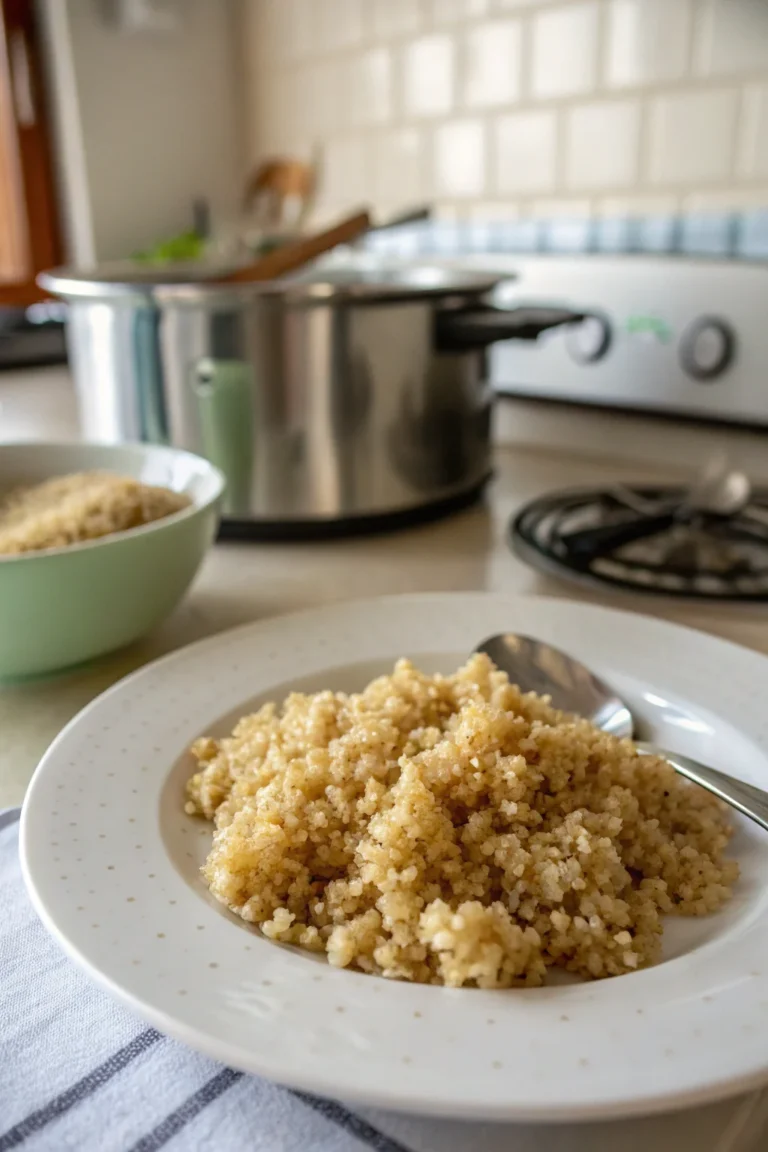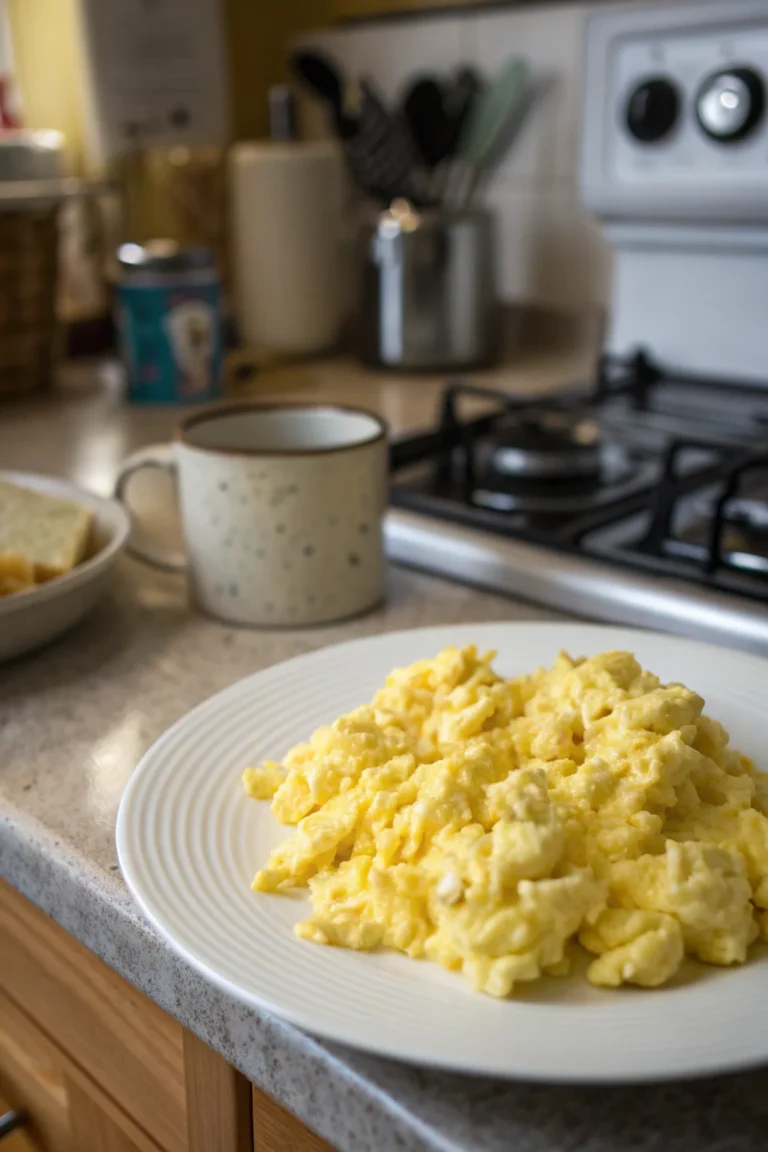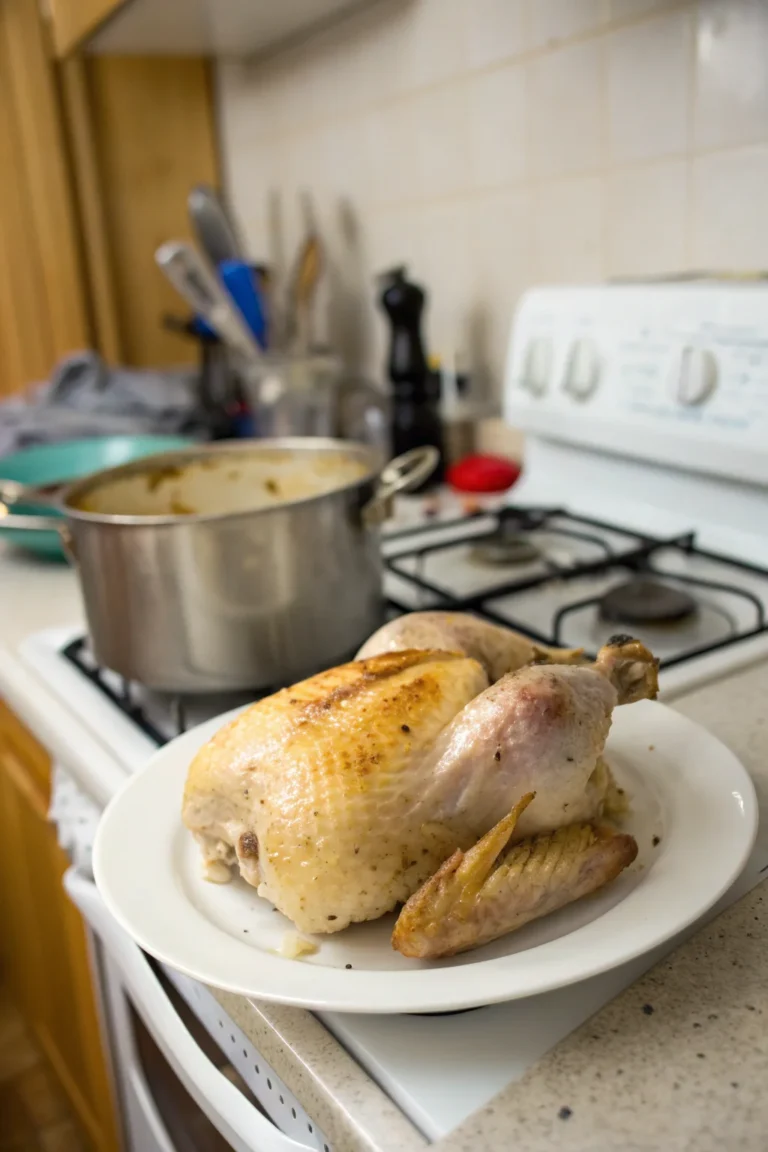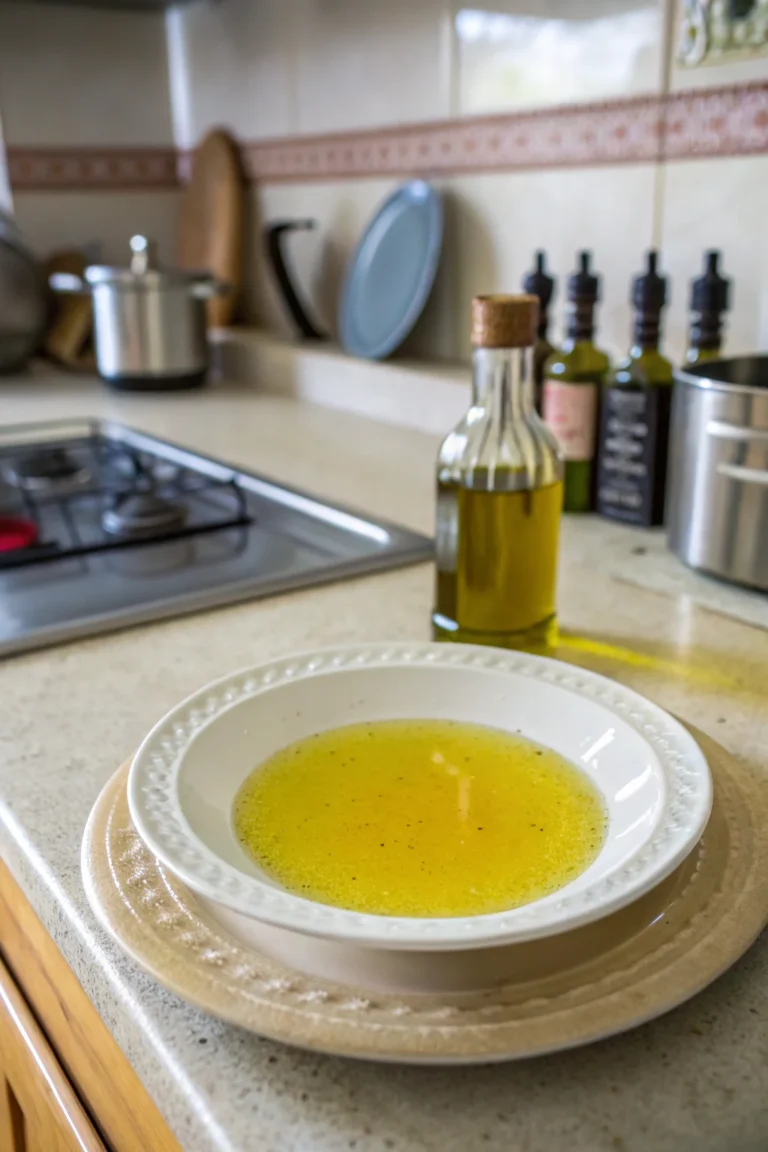Can You Freeze Cooked Eggs? | Meal Prep Tips
If you’ve ever found yourself with leftover cooked eggs or are planning to streamline your meal prep routine, you might wonder, “Can you freeze cooked eggs?” The good news is that freezing cooked eggs is entirely possible and can save you time and reduce food waste. In this FAQ-style guide, we’ll explore the best ways to freeze cooked eggs and share some meal prep tips to help you manage your kitchen more efficiently.
Table of Contents
Can You Freeze Cooked Eggs?
Yes, you can freeze cooked eggs. However, the texture may change slightly after freezing and thawing. It’s essential to know which types of cooked eggs freeze best and how to store them properly to maintain quality. When done correctly, freezing cooked eggs can be a game-changer for busy mornings or when you need to prepare meals in advance. Understanding the nuances of freezing different types of cooked eggs can help you maintain their taste and texture, ensuring your meals are just as enjoyable after reheating.
Freezing cooked eggs is an excellent way to avoid the hassle of cooking each morning, especially on busy weekdays. It allows you to prepare breakfast or meals ahead of time, so you can enjoy a quick, nutritious option without the need to cook from scratch each day. It’s also a fantastic method to reduce food waste, as you can extend the shelf life of your leftover eggs, making sure they don’t end up in the trash.
What Types of Cooked Eggs Can Be Frozen?
Not all cooked eggs freeze equally well. Here are some types that do better:
- Scrambled Eggs: These freeze well, especially when cooked until slightly underdone. The key is to avoid overcooking them initially since they will continue to cook slightly upon reheating. Adding a bit of milk or cream during cooking can also help maintain a softer texture. For instance, incorporating whole milk or half-and-half can add a richness that preserves moisture, ensuring the scrambled eggs remain fluffy after thawing.
- Egg Muffins/Omelets: These retain their shape and are easy to reheat. They are perfect for individual servings and can be customized with various ingredients like vegetables, cheese, and meats. The convenience of having pre-portioned, ready-to-cook meals can’t be overstated, making omelets and egg muffins ideal for hectic mornings.
- Egg-Based Casseroles: Dishes like quiches freeze better than plain cooked eggs. The combination of eggs with other ingredients creates a cohesive dish that holds up well in the freezer. The moisture from vegetables and proteins in casseroles can help maintain the overall texture, preventing dryness when reheated.
Soft-boiled or poached eggs are generally not recommended for freezing due to texture changes. The delicate whites and yolks tend to become rubbery and unappetizing when thawed. This texture change can significantly affect the eating experience, making these types of eggs less desirable after freezing.
How Do You Freeze Scrambled Eggs?
Freezing scrambled eggs is simple and efficient:
- Cook Lightly: Cook the eggs until slightly underdone, as they will continue cooking during reheating. A slightly softer texture upon initial cooking can prevent them from becoming rubbery later. Consider using a non-stick skillet and stirring gently to maintain a light, fluffy consistency.
- Cool Quickly: Let the eggs cool to room temperature to prevent moisture build-up, which can lead to ice crystals forming in the freezer. Rapid cooling can be achieved by spreading the eggs out on a baking sheet, allowing air to circulate evenly.
- Portion and Pack: Divide into individual portions and wrap each in plastic wrap or store in airtight containers. This makes it easy to grab and go with pre-measured servings. Using silicone muffin trays can also help portion out servings before freezing, making storage even more straightforward.
- Label and Freeze: Label with the date and freeze for up to 3 months. Clear labeling helps keep track of storage time and ensures you use them before quality starts to degrade. A permanent marker on freezer tape can be an easy labeling solution.
Ensure you remove as much air as possible from the packaging to prevent freezer burn, which can affect the taste and texture of the eggs. Vacuum sealing is an excellent option for those who freeze food frequently, as it provides an airtight seal that extends the life of frozen goods.
Can You Freeze Omelets?
Yes, omelets can be frozen successfully. To do so:
- Prepare as Usual: Cook the omelet with your preferred fillings. Consider ingredients that freeze well, such as cooked vegetables, ham, and cheese. Avoid high-moisture vegetables like tomatoes that can make the omelet soggy when thawed.
- Cool Completely: Allow it to cool to room temperature. This step is crucial to avoid condensation, which can lead to ice crystals. You can place the omelet on a wire rack to speed up the cooling process.
- Wrap and Store: Wrap tightly in plastic wrap or aluminum foil and place in a freezer-safe bag. This double-layer protection helps maintain freshness and prevents freezer odors from affecting the omelet. For added protection, consider using a vacuum sealer.
- Reheat Properly: Thaw overnight in the fridge and reheat in a non-stick skillet or microwave. Use a low heat setting to prevent overcooking and retain moisture. A splash of water in the pan can create steam, helping to rehydrate the omelet as it warms.
This method helps maintain the omelet’s flavor and texture, ensuring a satisfying meal even after freezing. By choosing ingredients wisely and following these steps, you can enjoy a flavorful omelet any day of the week.
How Long Can You Freeze Cooked Eggs?
Cooked eggs can be frozen for up to 3 months. To ensure the best quality:
- Use Airtight Packaging: This prevents moisture loss and freezer burn, preserving the eggs’ taste and texture. Consider investing in quality freezer bags or containers designed to withstand low temperatures.
- Label Clearly: Include the freezing date to keep track of storage time and ensure you’re consuming the eggs within the optimal period. A well-organized freezer with clearly labeled items can make meal planning much more manageable.
- Check Regularly: Inspect for any signs of spoilage before consuming. Look for changes in color, texture, or smell, which might indicate the eggs have gone bad. It’s a good habit to periodically review the contents of your freezer to avoid surprises.
By following these guidelines, you can enjoy the convenience of having ready-to-eat meals without compromising on taste. Regularly rotating your frozen stock ensures you’re enjoying the freshest possible meals and reducing waste.
What Is the Best Way to Reheat Frozen Cooked Eggs?
Reheating frozen cooked eggs can be done effectively by:
- Thawing First: For the best results, thaw eggs overnight in the refrigerator. This slow thawing helps maintain texture and prevents uneven heating. If you’re in a hurry, you can use the defrost setting on your microwave, but be cautious to avoid starting the cooking process.
- Using Low Heat: Reheat gently in a microwave or on the stovetop to avoid overcooking. Consider using a microwave-safe cover or a lid on the stovetop to retain moisture. A damp paper towel over the dish in the microwave can also help prevent drying out.
- Stirring Frequently: This ensures even heating and prevents rubbery texture, particularly with scrambled eggs. Stirring also helps distribute any moisture that may have settled during freezing.
Avoid high heat, which can cause eggs to become tough and dry. Taking the time to reheat gently can make a significant difference in the meal’s quality. Patience in the reheating process often results in a more enjoyable texture and flavor.
Are There Any Health Concerns with Freezing Cooked Eggs?
Freezing cooked eggs is safe if done correctly. Keep these tips in mind to minimize risks:
- Proper Storage: Use airtight containers and maintain a consistent freezer temperature to prevent bacterial growth. Regularly check your freezer’s temperature to ensure it remains at 0°F (-18°C) or below.
- Avoid Refreezing: Once thawed, do not refreeze eggs to prevent bacterial growth and texture degradation. Plan your portions carefully to avoid needing to refreeze.
- Monitor Freshness: Discard if any off smells or textures are present after thawing. Freshness can be compromised if eggs are stored too long or in suboptimal conditions. Trust your senses; if something seems off, it’s better to be safe and discard it.
For more food safety tips, visit the USDA Food Safety and Inspection Service. Staying informed about food safety can help prevent potential health risks associated with improper storage and handling.
Can You Freeze Deviled Eggs?
Freezing deviled eggs is not recommended. The texture of the egg whites changes significantly, becoming rubbery. The filling may also separate when thawed, leading to an unappetizing consistency. Instead, prepare the filling ahead and store separately, then assemble fresh when needed. This allows you to enjoy the best texture and flavor without the compromise that comes from freezing.
By preparing the filling in advance and storing it in an airtight container, you can quickly assemble deviled eggs when needed, ensuring they are fresh and flavorful. This approach allows for flexibility in serving, whether for a quick snack or a party platter.
What Are Some Meal Prep Tips for Using Frozen Eggs?
Incorporating frozen eggs into your meal prep routine can be a time-saver:
- Batch Cooking: Prepare large batches of scrambled eggs or omelets and freeze for easy breakfasts. Consider making different varieties to add variety to your weekly meals. You might try adding spinach and feta to one batch and peppers and onions to another for a diverse menu.
- Mix and Match: Use frozen eggs in breakfast burritos, sandwiches, or salads. This versatility makes them a great staple for various meals. Pre-made breakfast burritos can be a lifesaver on busy mornings, providing a hearty meal in minutes.
- Portion Control: Freeze in individual servings for quick, controlled portion sizes, which helps with dietary goals and reduces food waste. Pre-portioned meals can also aid in managing calorie intake and maintaining a balanced diet.
Experiment with different recipes to find what works best for your schedule and preferences. Keeping a variety of frozen egg dishes on hand can simplify your meal planning and ensure you always have something delicious ready to go. The flexibility of these meals can help accommodate dietary restrictions or preferences, providing a personalized meal solution.
Do Frozen Cooked Eggs Taste Different?
While frozen cooked eggs can be convenient, some minor texture changes might occur:
- Texture: May become slightly rubbery or watery. This can be minimized by careful cooking and reheating practices. Ensuring eggs are not overcooked initially and using gentle reheating methods can help maintain a desirable texture.
- Flavor: Generally retains well if stored properly. Using fresh ingredients and proper seasoning can help ensure the best possible taste. Adding herbs and spices before freezing can enhance flavors and make the reheated meal more enjoyable.
Using the right reheating methods can help minimize these changes, allowing you to enjoy meals that taste nearly as good as freshly cooked. The key is to understand the characteristics of your freezer and reheating equipment, tailoring your approach to best suit your kitchen setup.
Can You Freeze Egg-Based Dishes?
Yes, many egg-based dishes freeze well, including:
- Quiches: Perfect for freezing; just ensure they’re fully cooled before storing. The crust and filling hold up well to freezing and reheating. Quiches can be a delightful and versatile meal option, suitable for breakfast, lunch, or dinner.
- Frittatas: Slice into portions and freeze individually. This makes for convenient, quick meals when you’re short on time. Frittatas are versatile, allowing for a wide range of fillings that can cater to different taste preferences.
- Breakfast Casseroles: These often taste even better after freezing and reheating, as flavors meld together over time. Preparing casseroles in advance can save substantial time during busy weeks, providing hearty, filling meals with minimal effort.
These dishes are ideal for meal prep, providing quick and nutritious meals. They can be enjoyed for breakfast, lunch, or dinner, making them a versatile option for any meal plan. The flexibility in serving options makes these dishes a staple in many kitchens, offering a comforting and satisfying meal at any time of day.
How Do You Maintain Quality When Freezing Cooked Eggs?
To keep eggs tasting fresh:
- Cool Quickly: Rapid cooling prevents excess moisture, which can lead to freezer burn. Allow food to cool on a wire rack before transferring it to the freezer to ensure even temperature reduction.
- Use Quality Packaging: Invest in good containers or freezer bags to protect your food effectively. Sturdy, reusable containers can be a great investment, offering long-term savings and reducing plastic waste.
- Avoid Air Exposure: Remove as much air as possible to prevent freezer burn, which can negatively impact taste and texture. Techniques such as vacuum sealing or using a straw to suck out excess air can be helpful.
Regularly check your freezer’s temperature to ensure it remains at or below 0°F (-18°C). Consistent temperature helps preserve the quality of your frozen foods. Routine maintenance and cleaning of your freezer can also optimize its performance, ensuring your stored food remains in peak condition.
What Should You Avoid When Freezing Cooked Eggs?
To prevent poor results:
- Avoid Freezing Raw Egg Whites: They can become watery, affecting the consistency of dishes. Instead, consider using them fresh in recipes or cooking them before freezing.
- Don’t Freeze Soft-Cooked Eggs: The texture becomes unappealing, with a rubbery consistency that detracts from the eating experience. These types of eggs are best enjoyed fresh for their optimal texture and flavor.
- Avoid Repeated Thawing and Freezing: This affects both safety and quality, leading to increased risk of spoilage and texture issues. Plan your meals and servings to avoid needing to refreeze items.
Being mindful of these tips can lead to better freezing outcomes, ensuring your meals remain delicious and satisfying. Understanding the limitations of freezing can guide you in selecting the best meal prep strategies for your lifestyle and dietary preferences.
Wrap-Up
Freezing cooked eggs is a practical way to manage leftovers and simplify meal prep. By following the right techniques, you can enjoy delicious, convenient meals without compromising on quality. Whether you’re preparing for a busy week or looking to reduce waste, freezing cooked eggs can be a valuable addition to your kitchen routine. For more meal prep ideas, check out our Meal Prep Guide and explore creative ways to use up your leftover ingredients. With these tips, your freezer can become a treasure trove of ready-to-eat, nutritious meals that cater to your tastes and lifestyle.
Taking the time to properly prepare and store your cooked eggs can transform your meal planning, offering a wide range of benefits from time savings to reducing food waste. By incorporating these strategies into

